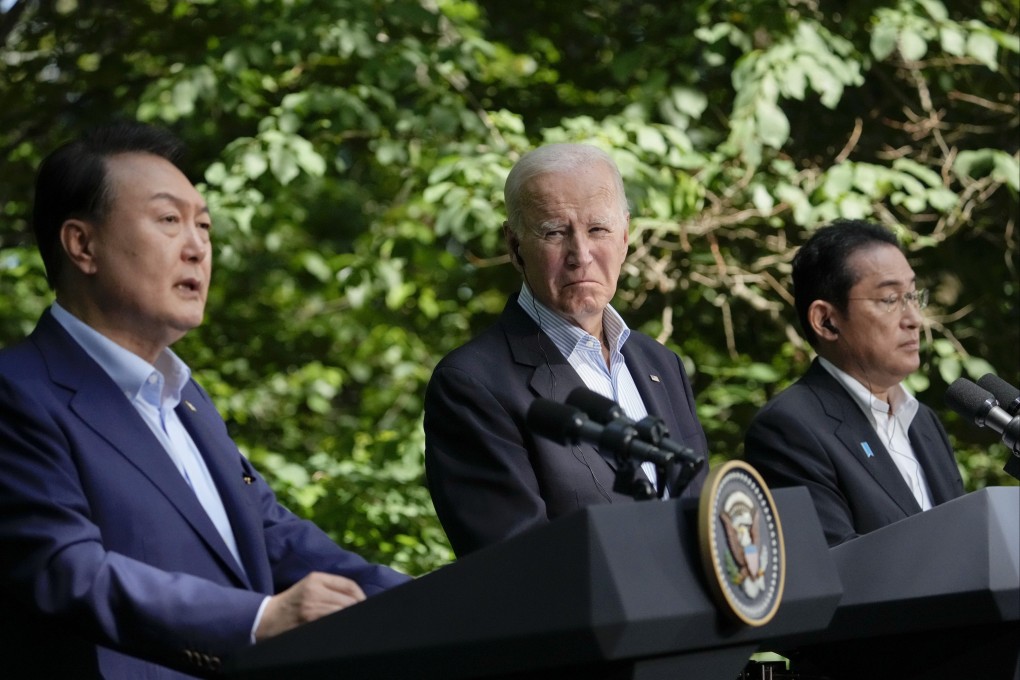My Take | The latest Camp David deal is just more US-allied overkill
- As America’s military encirclement of China proceeds apace, the security pact with South Korea and Japan will further destabilise the region

The White House and its sycophantic press corps have gone gaga over the latest security deal made at Camp David with Japan and South Korea. But from a purely military perspective, you may well wonder what the fuss is about. Perhaps bringing about a rapprochement of sorts between the two Asian countries when their relations had been worsening in recent years is a big score for Washington. But given Korean President Yoon Suk Yeol’s chronic unpopularity, especially over his compromises with Tokyo over Japan’s wartime crimes to bring about the latest deal, it’s anyone’s guess whether or how long the good feelings can last.
Bear in mind that South Korea and Japan are formal US military allies, indeed the most important in the region. Any attack on one or both obligates Washington to come to their full defence. There is none of that so-called strategic – “we may or may not defend you” – ambiguity such as over Taiwan.
Let’s look at the big military picture in the Pacific. It’s been clear long before the Camp David summit last week – actually even before all three leaders came to power – that China’s coastlines have been boxed in by foreign US bases and its allies.
According to David Vine, an American political anthropologist and author of Base Nation: How US Military Bases Abroad Harm America and the World, the United States had roughly 750 known military bases and facilities in at least 80 countries in 2021. These, however, did not include black sites, and hidden or non-permanent operational bases.
Japan has the highest number with 120 US bases and other facilities, followed by Germany with 119 and South Korea with 73. In other words, the US has, long ago, maximised its military presence in both Asian countries. Then there are those US bases and facilities in the Philippines, Australia, Palau in Micronesia and Papua New Guinea.
The new Camp David security deal means Tokyo and Seoul will take up more of the slack when it comes to regional security, something the Europeans have long been reluctant to do. It’s a good deal for Washington, but it doesn’t mean overall security will improve for the Asians themselves. Rather, as the South Korean opposition and even some advisers within the Yoon government have argued, it will likely provoke a tit-for-tat response from China, not to say North Korea.
